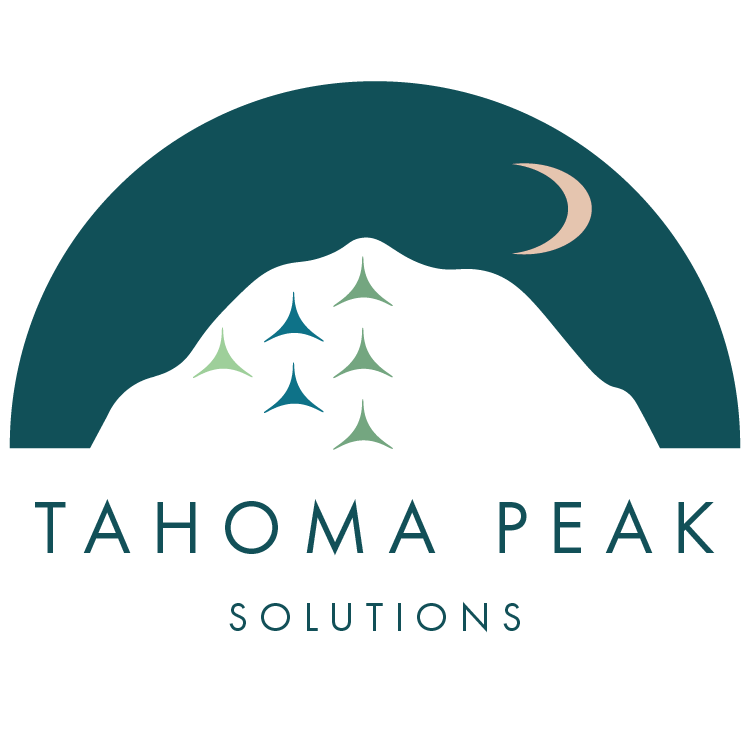
DIVERSITY EQUITY AND INCLUSION
Everyone benefits
When we have a genuine and real understanding of the diverse histories and peoples in our communities.
However, the systemic erasure of Native American history and the invisibility of contemporary Native people have created substantial misunderstandings of Indigenous Americans and carry serious negative consequences.
Most DEI training efforts do not capture the unique histories of Indian Country.
Tahoma Peak wants to change that
The TPS team has over 15 years of experience training lawmakers, non-profits, foundations, and companies on the nuances of DEI work in Indian Country.
Fundamentals
We recommend organizations start with these three introductory trainings to build their knowledge in the space.
INDIAN COUNTRY 101
In this introductory session, TPS will cover the basic principles of Diversity, Equity, and Inclusion related to Indigenous Americans. We will cover the history of Native people in the US, the basics of Tribal sovereignty, and first steps for engagement with Tribes and Native people.
INDIGENOUS COMMUNICATIONS
In this intensive on Indigenous Communications, Tahoma Peak will answer all your possible questions about communicating with and about Indigenous people. This session defines commonly used terms, and explores how to best communicate with Indigenous people, what to say, and what not to say. The session ends with a technical writing exercise to test our learning. This session is perfect for communications teams.
OUTREACH IN INDIAN COUNTRY
Understanding the history and context that led to our contemporary experience is essential when working with Tribes and Native Communities. In this session, we cover the crucial steps required to build meaningful and sustainable relationships in Indian Country. This session is a MUST for teams beginning their first forays in Indian Country.
Intensives
Depending on your team or organization’s expertise and interest areas, we offer these intensives on specific issue areas.
Policy and Public Lands
FEDERAL INDIAN LAW AND POLICY
Tribes have a trust relationship with the US Federal government, creating a complex political and legal landscape. In this training, we will cover the fundamentals of Tribal Sovereignty and policies that impact Native communities.
Indigenous Foodways
NORTHWEST NATIVE FOODS
For generations, salmon, elk, roots, wild greens, and berries have held thier rightful place as the center of Coast Salish Food Culture. In this training, we cover the importance of NW Native foods and thier nutritional properties and benefits.
PUBLIC LANDS AND INDIAN COUNTRY
Indigenous people have been connected to thier homelands for thousands of years. Through 500 years of colonization, Indigenous lands have been transformed into what we now call public lands. This session explores that history and the impacts of colonization on the conservation movement.
NATIVE FOOD SYSTEMS
This session explores the history of Native foods, provides background on Native food systems today and gives a foundational understanding of food and nutrition in Indian Country.
FOOD SOVEREIGNTY AND EDUCATION INITATIVES IN TRIBAL COMMUNITIES
This training covers the meaning and foundations of Tribal Food Sovereignty. This includes an overview of Native-led initiatives across Indian Country.
Advanced
We offer these trainings and facilitations to organizations and teams that have already completed the 3 Fundamental trainings (or have related experience). If the Fundamental trainings are the 101 level, the advanced trainings here are the graduate level. These trainings take the fundamental learnings to the next level by understanding the pervasive nature of colonialism and how it impacts their work and relations with Indigenous peoples.
HISTORY OF COLONIZATION
This presentation will explore what European conquest has looked like, and how to move towards decolonization. The focus of this session is first to recognize and label what you don’t know related to engrained colonialism.
IMPLICIT COLONIALISM
This presentation will focus on unpacking implicit colonialism. We will run through examples of implicit colonialism and train the team to identify and unpack them. After this session, the team will be able to identify threads of colonialism in their everyday lives.
DECOLONIZING YOUR WORK FACILITATION
In this consensus workshop, we center around answering a single question- how to Decolonize your work. In this session, we will guide the team through a series of writing exercises to find agreements to take the team forward. We will organize post-its and provide a visual for the team to represent the work and thought journey.
-
I don't think I have ever been so moved - and moved to action - than I have been as a result of this session. Thank you so much.
DEI Session Participant
-
Their guidance on work related to diversity, equity, and inclusion has been integral to deepening our understanding and historical context of Indigenous communities.
Newman’s Own Foundation
-
This workshop should be a regular part of every organization’s DEI curriculum.
The Wilderness Society
-
This has greatly informed our own personal learning journey and helped articulate our strategy for Indigenous youth and how the foundation shows up as change agent.
Newman’s Own Foundation

“I spent years on Capitol Hill giving the Indigenous 101 presentation to Senators and Members of Congress.
We have built our trainings on this foundation to make it available to everyone, not just within the halls of Congress.”
— Maria Givens, TPS Founder and Partner
Contact us.
savannah@tahomapeak.com
Contact TPS Today to schedule your Indigenous DEI Training.
Led by Maria Givens and Savannah Romero, a TPS Indigenous DEI training will cover the foundations of Tribal sovereignty, the histories of Native people in North America and tangible steps for your organization to be as inclusive to Tribes and indigenous people as possible.


